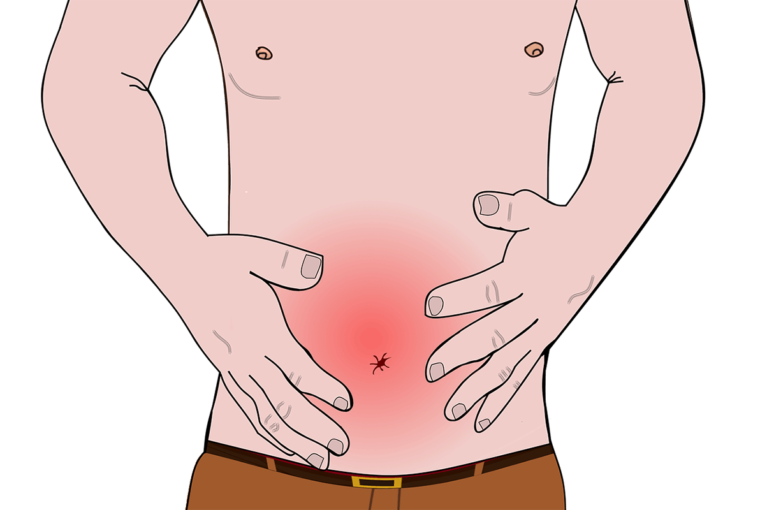As the saying goes, you should take care of your gut so it can take care of you. It’s because a healthy gut means a healthy immune system, and failing to take care of your gut health can lead to poor mental, digestive, and heart conditions. A healthy gut should not only be free from toxic microorganisms; it should have good bacteria as well. Your good gut bacteria can help with your digestion and ensure that your body has a well-functioning immune system.
An unhealthy gut often leads to rectal symptoms, sleep deprivation, uncontrollable food cravings, skin irritation, and mood changes. To avoid these health issues that can damage your body over time, it helps to identify the signs of a healthy gut first.
Here are the things you should look for when checking for a well-functioning digestive system:
1. Healthy Bowel Movement
One of the first healthy signs you should be aware of is your current bowel movement. An unhealthy gut causes irritable bowel syndrome (IBS), which affects your large intestines. IBS can happen if you have bacteria imbalance and don’t have enough stomach acid to help break down food properly. Some symptoms of irritable bowel syndrome include diarrhea, frequent gas release, constipation, bloating, and constant abdominal pain.
You don’t have to worry about gut issues if you’re not experiencing any of these symptoms and you don’t notice any strange characteristic in your stool’s appearance and consistency. If you’re unsure of what your stool says about your gut health, you can take gut test kits that you can use in the comfort of your own home, such as a My Psomagen test kit.
2. Proper Amount Of Sleep
An unhealthy digestive system contributes to sleep deprivation and affects a person’s focus throughout the day. If you see patterns of insomnia, chronic fatigue, and dark circles under your eyes, they can be signs of gut damage. Serotonin is a key hormone that may help promote a good mood and sleep. Because 90% of your serotonin is formed in the gut, a damaged digestive system won’t produce enough serotonin, depriving your body and brain of the right amount they need.
You don’t have to worry about taking any sleeping pills for insomnia and painkillers for migraines if your gut is healthy because a healthy gut allows you to get eight hours of sleep and keeps you active the next day.
3. Low Sugar Cravings
Another noticeable sign of a healthy gut is the lack of food cravings, especially sugar. Too much sugar in your gut forms too much bacteria and causes dysbiosis, a frequent feeling of bloating, and gas release. A continuous high-sugar diet can lead to other major health issues over time such as diabetes and cancer.
Craving sugar from time to time is normal and nothing to worry about, but it’s time to change your eating habits if you can’t control your food cravings anymore. If you have a well-balanced diet comprised of vegetables, meat, and sugar, you’ll be able to maintain a healthier gut with it more than with high-sugar diets.
4. Good Skin Condition
A dysfunctional stomach can also cause skin complications because the stomach is near the skin through the gut-skin axis. Good gut bacteria are essential for keeping good, healthy skin. The skin and intestine have their own respective bacteria which affect the skin microbiome’s composition. An abnormal gut flora, the complex ecological system which helps digest food, is a factor that leads to skin abnormalities, resulting in eczema, atopic dermatitis, psoriasis, and other skin disorders.
Because gut bacteria play a direct role in skin health, the right amount of probiotics and prebiotics can improve the skin by balancing the gut. So, if you have sudden skin breakouts, gut health is a factor you should consider. A healthier gut will result in fewer skin irritations and lessened acne breakouts.
5. No Unintentional Weight Changes
An individual’s weight gain is mostly due to the harmful bacteria living within their intestines. Some bacteria perform essential functions that break down food for the body, but a high-fat diet can also produce intestinal bacteria that may cause obesity. If you lose or gain weight without changing diets and routines, it may suggest a damaged gut.
Small intestinal bacterial overgrowth (SIBO) leads to an imbalanced digestive system, resulting in insufficient nutrient intake, impaired glucose control, and excessive body fat. If you notice abnormal and drastic changes in your weight, it’s time to switch to a healthier diet and lifestyle. You don’t want to prolong a continuous extreme weight gain as it can transform into obesity over time.
6. Positive Mental Health State
Some medical conditions might be due to the lack of sufficient food intake, which equates to a nutritional deficiency that hinders the body to function correctly. If you have mental health problems, this may be due to a problematic digestive system that prevents you from getting adequate nutrition. A leaky gut may keep your body from absorbing the micronutrients you need to produce enough ‘happy hormones’ that make you emotionally and mentally stable.
Suppose you don’t notice any patterns of anxiety attacks, irritability, sudden mood changes, and depression. In that case, it means that your gut is healthy enough to produce the serotonin and dopamine levels your body needs. However, if you do suffer from mental issues, the right amount of probiotics can relieve depression and anxiety when you take them with other healthy meals.
Takeaway
The gut microbiome is a critical aspect of an individual’s well-being because it helps regulate digestion as well as improve immune function and many other body operations. A healthy gut means a healthy and happier version of yourself, so take good care of your digestive system by enforcing healthier diets and habits to your lifestyle.




